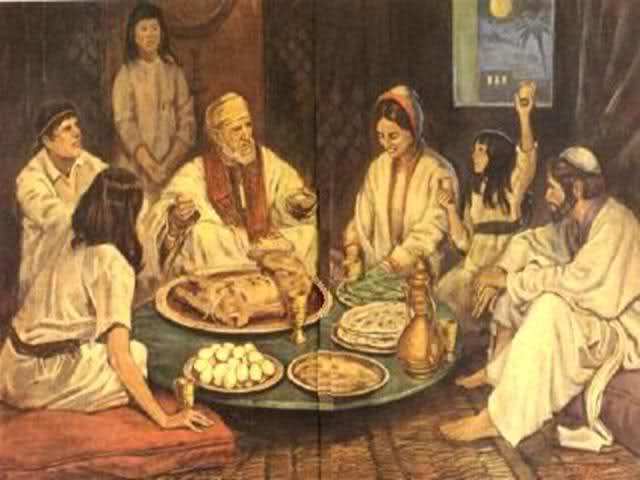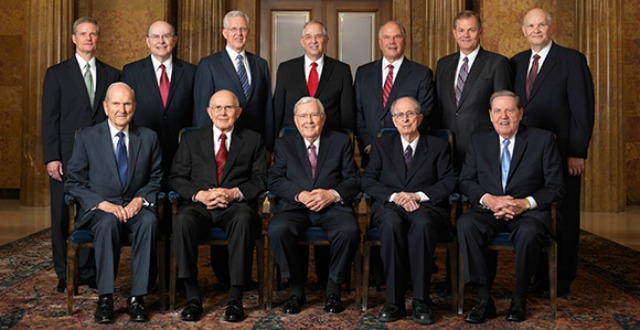Question
Gramps,
Greetings, I’m a member of the church, but my father isn’t a member. He says that the church thinks that women are less important than men because they don’t have the priesthood. He says that the men carry a significant and respectful title, like elder, when they’re missionaries, and for the women, we just call her sister. He’s being asking me, my wife and the missionaries about this and we’ve invited him to pray, but he still says that he’s not convinced. I’ll be grateful if you could help me. Thanks.
Juan
Answer
Dear Juan,
Let me tell you about the women in the Church – how they are viewed by their brothers and sisters, and what they do – and you and your father can compare that to other organizations.
Young Women
Let’s start with young women (ages 12 to 18). It’s a regular practice in several wards for the young women to recite every Sunday the organization’s theme. “We are daughters of our Heavenly Father, who loves us, and we love Him,” they say, reminding themselves that they are divine creatures – children of a personal God! They continue, speaking of their Christian duties: “We will ‘stand as witnesses of God at all times and in all things, and in all places’ (Mosiah 18:9) as we strive to live the Young Women values, which are:
“Faith, Divine Nature, Individual Worth, Knowledge, Choice and Accountability, Good Works, Integrity, and Virtue.”
These are values to be found in only the best and noblest of women, and here we are fostering them in our own young women. Our youth recognize this, and look forward to the future with a brightness of hope: “We believe as we come to accept and act upon these values, we will be prepared to strengthen home and family, make and keep sacred covenants, receive the ordinances of the temple, and enjoy the blessings of exaltation.” This is no small charge! Exaltation is the brass ring everyone’s aiming for; the temple is spoken of in the most reverent of terms, and here they are seeking it out; the family is the foundational unit of church and society, and they’re preparing themselves to lead.
Speaking of leadership, the young women are divided into three classes (12-13; 14-15; 16-17). Each of these classes has a presidency (of three) selected from the members of the class. The class presidency conducts the class meetings, plans activities (including the group activities that invite other classes or even includes the young men), serve on larger youth committees, and seek out the welfare of all class members. Starting at 12! They are assisted and trained by two adults – a ward young women’s president and a class advisor. By the time they are 18, these women are prepared to lead, plan, and execute.
I should also mention that this last April, a young woman of the age of 12 gave the prayer in a general (meaning Church-wide and world-wide) women’s meeting (you can see it at the 6 1/2 minute mark).
Adult Women
At 18, our young women join the adults in Relief Society. I’ll have more to say about Relief Society tomorrow, where I’ll show that it is a powerful organization comprised of women with significant modern and historical contributions. For now, let me point out that this organization similarly has a presidency selected from among its members (all female) who preside and conduct their meetings (you’ll see in the video linked to that the General Presidency conducted the worldwide meeting), plan activities, and seek out the welfare of their members. From among their ranks, they select one or more instructors to teach their classes. The women lead, counsel, and govern.
The Relief Society president sits on the Ward Council (a body organized to see that the local congregation’s needs are met). Also sitting on the Council is the Ward Young Women’s president and Primary president (the woman who is over the organization of children younger than 12. We don’t trust our children to run their own classes the way the youth and adults do). These women are valued in these Councils for the guidance and perspective they share, as well as the leadership they take back to their organizations. And where they have been underused, the bishops have been censured. Recently, in a 2011 leadership training Elder Scott taught that such neglect in a disfunctioning Council should be done away. “I have observed … that sisters do not participate openly in ward council meetings. This is most unfortunate, because they have perspectives and experiences that are of immense value. When they can be encouraged to take part freely in ward council meetings, their ideas are always helpful and inspirational.”
In addition to this, the women in the Church speak in our meetings – giving sermons (including our young women), fully participate in our classes, and offer congregational prayers.
Family Women
I mentioned earlier that the home is the building block of the Church – and so it is. As such, women have a vital role in this essential organization. In a proclamation first read in a General Relief Society meeting, the roles of fathers and mothers were succintly defined: “By divine design, fathers are to preside over their families in love and righteousness and are responsible to provide the necessities of life and protection for their families. Mothers are primarily responsible for the nurture of their children. In these sacred responsibilities, fathers and mothers are obligated to help one another as equal partners. Disability, death, or other circumstances may necessitate individual adaptation.”
Now this sounds like the traditional roles of a man and a woman in a family. And usually, that leads to accusations of inequality (I’m not saying this is one of your father’s charges against us, but it is a common one). Let’s be clear here. Mother nurtures and Father provides. So where does that leave the dishes? Laundry? Dinner? Are these nurturing activities or are these providing activities? Or do these fall under the “equal partners” clause? While this document is very traditional, it allows a large amount of flexibilty for each family situation, including “individual adaptation” as needed.
I’ll also add here that men in the Church are commanded to follow the biblical precepts: “Husbands, love your wives, even as Christ also loved the church, and gave himself for it;” and again, “men [ought] to love their wives as their own bodies. He that loveth his wife loveth himself” (Ephesians 5:25, 28). I mention these verses specifically because any man who abuses his wife or treats her as a lesser is damaging and damning himself. He is called to repentance by the highest authorities on earth. Our dear prophet has spoken out on such matters:
“Any man in this Church who abuses his wife, who demeans her, who insults her, who exercises unrighteous dominion over her is unworthy to hold the priesthood. Though he may have been ordained, the heavens will withdraw, the Spirit of the Lord will be grieved, and it will be amen to the authority of the priesthood of that man.
“Any man who engages in this practice is unworthy to hold a temple recommend.
—
“If there be any within the sound of my voice who are guilty of such behavior, I call upon you to repent. Get on your knees and ask the Lord to forgive you. Pray to Him for the power to control your tongue and your heavy hand. Ask for the forgiveness of your wife and your children.”
Conclusion
I shouldn’t end without addressing your father’s specific issue that you mentioned. When it comes to preaching the gospel, “missionary work is essentially a priesthood responsibility“. As such, our missionaries are referred to in the most formal of “church names”. Just as the term “Elder” sets the missionary apart, so does the term “Sister”. I fear the person who considers “Sister” a disrespectful title.
Do these sounds like “lesser” members to you? Does your father see you treating your wife like some sort of second-class citizen in the home or in the Church? We have powerful, leading women in our organizations and in our own families. These women are pillars in our congregations and a blessing to the saints. I thank God for them.
Gramps
*Stay tuned for Part 2.







